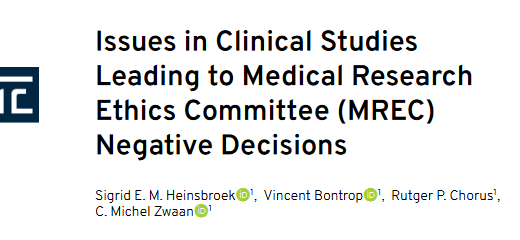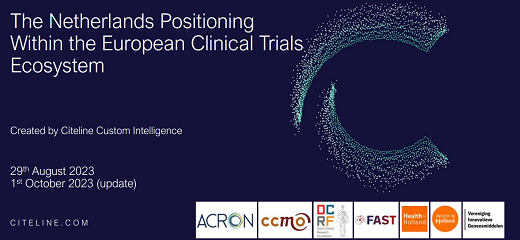Publicatie: Issues in Clinical Studies Leading to Medical Research Ethics Committee (MREC) Negative Decisions
Op 22 maart is het artikel “Issues in Clinical Studies Leading to Medical Research Ethics Committee (MREC) Negative Decisions” van Sigrid Heinsbroek, Rutger Chorus,...






